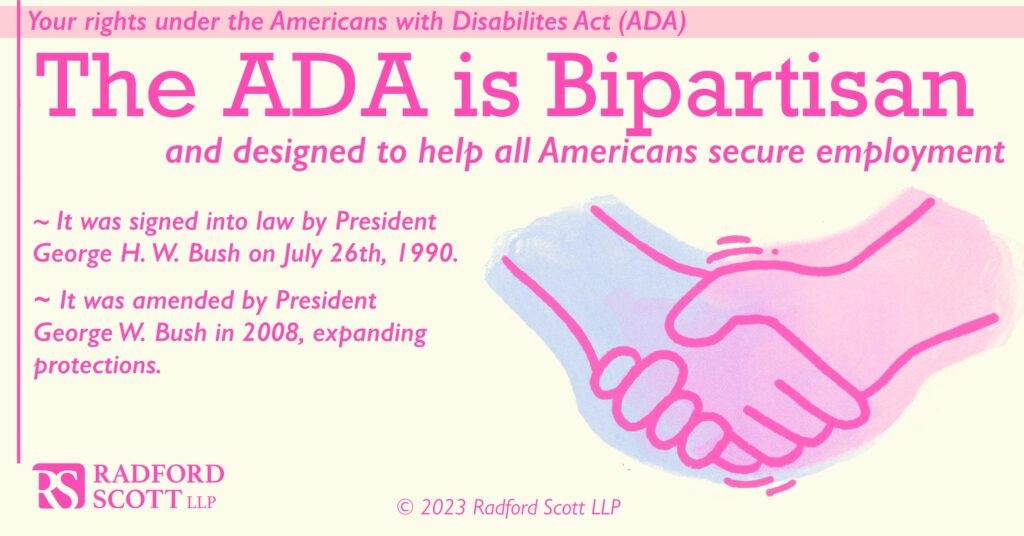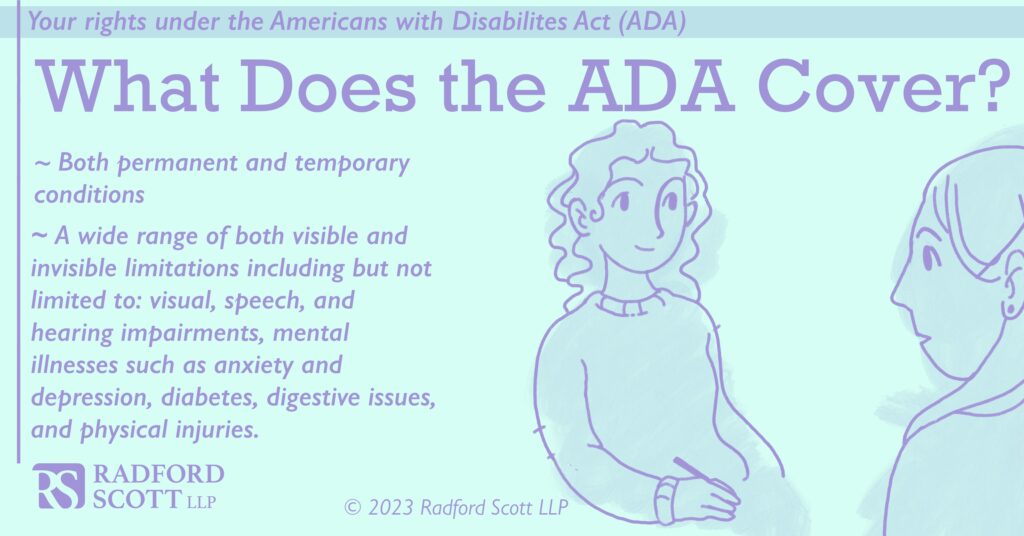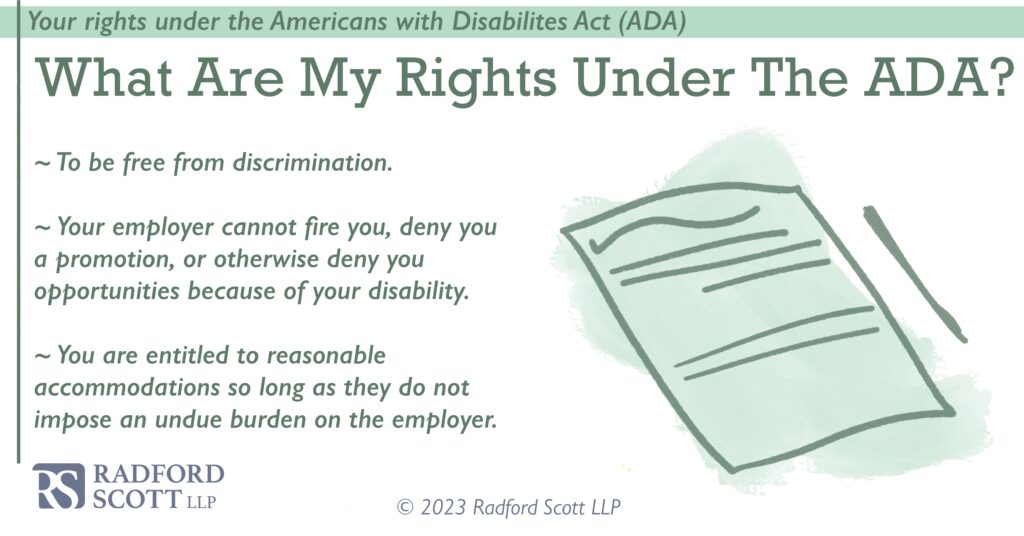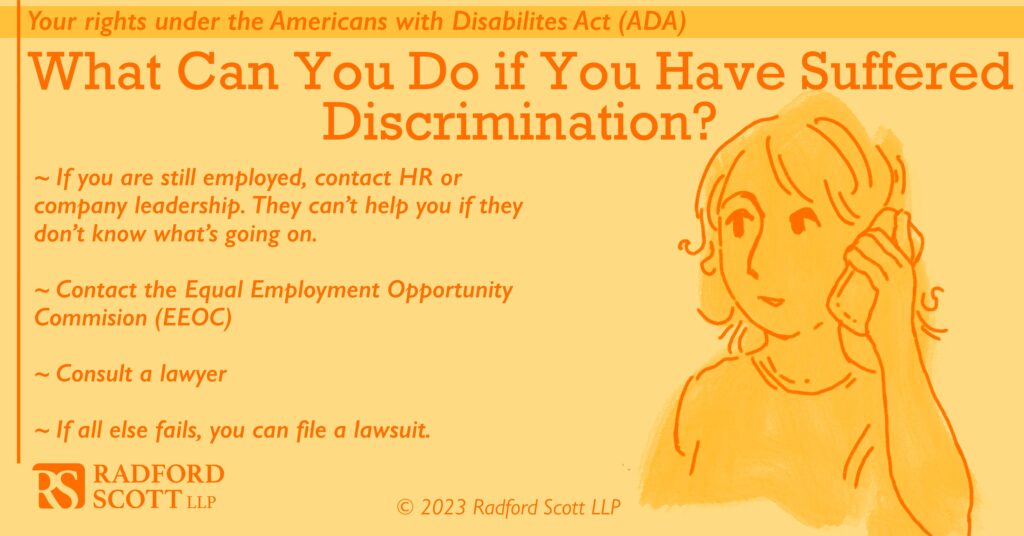The Americans with Disabilities Act (ADA) is a landmark law designed to ensure that all Americans have equal opportunity to employment, government services, and public accommodations.
One little known fact of the law is that it is highly bipartisan. While anti-discrimination laws are often considered to be partisan in nature, the ADA was passed with broad support by both Democrats and Republicans. The law was signed by Republican George H.W. Bush. The ADA Amendments Act of 2008, which expanded the law, was passed under his son, George W. Bush. Indeed, the ADA is a law that benefits all Americans, regardless of color or creed. Each of us is susceptible to injury, illness, and disability, no matter our background

Title I of the ADA relates to employment.
In this context, “disability” is defined broadly. Of course, the law covers chronic, highly visible permanent disabilities, such as paralysis, blindness, and deafness. But it also covers “invisible” disabilities such as depression, migraine disorder, or diabetes. It covers temporary disabilities–for example, a temporary lifting restriction related to an injury. And despite common belief, an impairment does not have to be “severe” to be covered.

Workers are entitled to “reasonable accommodations” for disability. Generally speaking, this means an accommodation that allows the employee to perform the “essential functions” of the job. An easy example would be a ramp into the workplace for an employee who relies on a wheelchair. Another example might be allowing a diabetic employee to eat at regular intervals during the workday, even though employees are generally not supposed to have food in the workplace. Or providing a “screen reader” with large text for a visually impaired employee who works on a computer.
Difficult questions sometimes arise when the employer argues that the requested accommodation is too costly or burdensome, or would prevent the employee from performing the essential functions of the job. For example, if someone is hired to work on an assembly line, but requests to “work from home,” that request would not be considered reasonable, because an essential function of the job is to be on site. However, if that same employee is hired to be a sales representative, with most of the work performed on the phone and by email, and she requests to work from home (for example, because she has a migraine disorder that is triggered by the florescent lights in the office), the employer could not deny the request unless it can demonstrate that being in the office is an “essential function” of the job.

Employers also are not required to make accommodations that would be so costly or difficult that they would have an “undue burden,” meaning a substantial negative impact on the finances or operation of the business.
The question of whether an accommodation is “reasonable” is often a difficult one. At Radford Scott, our attorneys are well versed on the intricacies of the law. We have litigated and won cases against employers who have denied reasonable accommodations to their employees. We have offered advice and guidance to both employers and employees regarding their rights and obligations under the ADA.

If you have questions about your rights under the ADA, or if you believe you have suffered discrimination, please give us a call or send us an email. If you are a business owner who wants to be sure you are in compliance with the law, please reach out. We are here to help.
